.jpg)
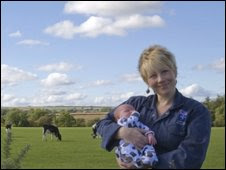

Gas mask bra traps Ig Nobel prize
By Victoria Gill
Science reporter, BBC News
newsimg.bbc.co.uk/00507F90.jpg
The bra converts into a mask for the wearer and one for a needy bystander
Designers of a bra that turns into gas masks and a team who found that named cows produce more milk were among the winners of the 2009 Ig Nobel prizes.
The aim of the awards is to honour achievements that "first make people laugh and then make them think".
The peace prize went to a Swiss research team who determined whether it is better to be hit over the head with a full or empty bottle of beer.
The ceremony was organised by the magazine Annals of Improbable Research.
Catherine Douglas and Peter Rowlinson from the agriculture, food and rural development department of Newcastle University were the only UK recipients.
newsimg.bbc.co.uk/21397751.jpg
Catherine Douglas was "thrilled" with her award
Dr Douglas, who was unable to attend the ceremony held at Harvard University in Cambridge, US, told BBC News that she was "thrilled" to have been selected and was a "big fan of the Ig Nobel awards".
She said that discovering cows with names were more prolific milk-producers emerged during research into improving dairy cow welfare.
The overall aim of the study was to reduce stress and fear by improving "the human-animal relationship".
"[This research] showed that the majority of UK dairy farmers are caring individuals who respect and love their herd," she said.
Dr Douglas dedicated the award to Purslane, Wendy and Tina - "the nicest cows I have ever known".
Risky celebrations
The Ig Nobel Prizes were presented to the winners by genuine Nobel laureates.
Dr Elena Bodnar won the public health prize for the bra that, in an emergency, can be converted into two gas masks.
She demonstrated her invention and gave one to each of the Nobel laureates as a gift.
Professor Martin Chalfie, who won the Nobel prize for chemistry in 2008, was this year's prize in the "win a date with a Nobel laureate" contest.
Past winners also returned to take part in the celebrations. They included Kees Moeliker, the discoverer of homosexual necrophilia in the mallard duck, and Dr Francis Fesmire, who devised the digital rectal massage as cure for intractable hiccups.
newsimg.bbc.co.uk/2B6861D7.jpg
The prize for mathematics went to the governor of Zimbabwe's Reserve Bank
Each new winner was permitted a maximum of 60 seconds to deliver an acceptance speech. The time limit was enforced by an intractable eight-year-old girl.
The evening also featured numerous tributes to the evening's theme of "Risk".
A 15-minute risk cabaret concert by the Penny-Wise Guys preceded the ceremony, during which the band paid special tribute to fraudster Bernie Madoff.
Appropriately, the prize for economics went to the executives of four Icelandic banks.
The governor of Zimbabwe's Reserve Bank received the prize for mathematics for printing bank notes with such a wide range of denominations.
The full list of winners:
Veterinary medicine: Catherine Douglas and Peter Rowlinson of Newcastle University, UK, for showing that cows with names give more milk than cows that are nameless.
Peace: Stephan Bolliger, Steffen Ross, Lars Oesterhelweg, Michael Thali and Beat Kneubuehl of the University of Bern, Switzerland, for determining whether it is better to be smashed over the head with a full bottle of beer or with an empty bottle.
Biology: Fumiaki Taguchi, Song Guofu and Zhang Guanglei of Kitasato University Graduate School of Medical Sciences in Sagamihara, Japan, for demonstrating that kitchen refuse can be reduced more than 90% in mass by using bacteria extracted from the faeces of giant pandas.
Medicine: Donald L Unger of Thousand Oaks, California, US, for investigating a possible cause of arthritis of the fingers, by diligently cracking the knuckles of his left hand but not his right hand every day for more than 60 years.
Economics: The directors, executives, and auditors of four Icelandic banks for demonstrating that tiny banks can be rapidly transformed into huge banks, and vice versa (and for demonstrating that similar things can be done to an entire national economy).
Physics: Katherine K Whitcome of the University of Cincinnati, Daniel E Lieberman of Harvard University and Liza J Shapiro of the University of Texas, all in the US, for analytically determining why pregnant women do not tip over.
Chemistry: Javier Morales, Miguel Apatiga and Victor M Castano of Universidad Nacional Autonoma in Mexico, for creating diamonds from tequila.
Literature: Ireland's police service for writing and presenting more than 50 traffic tickets to the most frequent driving offender in the country - Prawo Jazdy - whose name in Polish means "Driving Licence".
Public Health: Elena N Bodnar, Raphael C Lee, and Sandra Marijan of Chicago, US, for inventing a bra that can be quickly converted into a pair of gas masks - one for the wearer and one to be given to a needy bystander.
Mathematics: Gideon Gono, governor of Zimbabwe's Reserve Bank, for giving people a simple, everyday way to cope with a wide range of numbers by having his bank print notes with denominations ranging from one cent to one hundred trillion dollars.

 This summer, Allison Weiss, a 22-year-old singer who writes melodic songs about "hopeless hope," wanted to produce a 1,000-CD run of a new album she was recording, but she wasn't sure how to get the money to do it. Then she heard about Kickstarter, a Web site unveiled in April. At Kickstarter, creative types post a description of a project they want to do, how much money they need for it and a deadline. If enough people pledge money that the artists reach (or surpass) their financial goals, then everyone is billed, paying in advance as you would for a magazine subscription. For goals that aren't reached, nobody is charged.
This summer, Allison Weiss, a 22-year-old singer who writes melodic songs about "hopeless hope," wanted to produce a 1,000-CD run of a new album she was recording, but she wasn't sure how to get the money to do it. Then she heard about Kickstarter, a Web site unveiled in April. At Kickstarter, creative types post a description of a project they want to do, how much money they need for it and a deadline. If enough people pledge money that the artists reach (or surpass) their financial goals, then everyone is billed, paying in advance as you would for a magazine subscription. For goals that aren't reached, nobody is charged. ILLUSTRATION BY LAUREN NASSEF
ILLUSTRATION BY LAUREN NASSEF






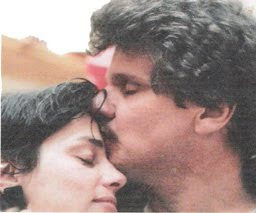




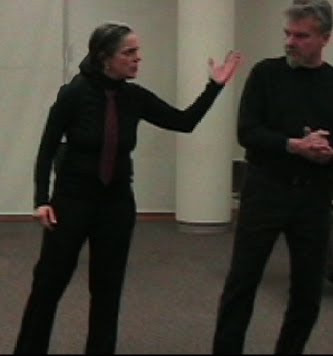




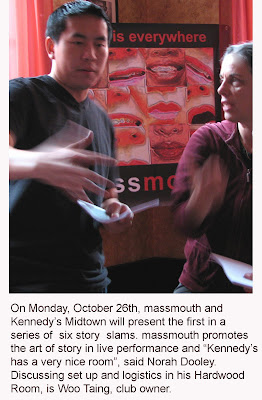

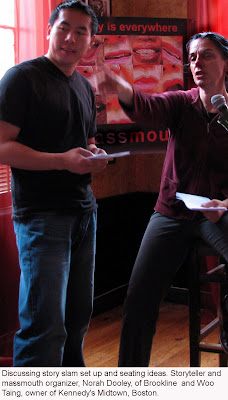


.jpg)

